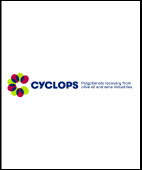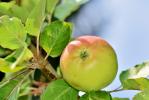
LIFE Project: Recycling of polyphenols from waste
- Type Project
- Status In progress
- Execution 2022 -2026
- Assigned Budget 2.589.384,00 €
- Scope Europeo
- Autonomous community Cataluña
- Main source of financing LIFE
- Project website Web del proyecto
LIFE CYCLOPS seeks to recover polyphenols present in petroleum byproducts through a circular economy, zero-waste, and energy self-sufficiency solution. The recovered polyphenols will be value-added products for the food, nutraceutical, pharmaceutical, and cosmetics industries.
Olive oil contributes significantly to the economies of Mediterranean countries. However, its production generates problematic waste streams, including alperujo, a high-moisture mixture of vegetation water, solid parts of the olive, and fatty residues. Disposal of this waste is complicated by its highly polluting polyphenol content. A new circular management model is required to valorize the nutritional properties of polyphenols, which are a rich source of antioxidants. Therefore, extracting these polyphenols would provide a valuable product for the food industry, among other sectors, while removing a polluting substance from a significant waste stream.
- Demonstrate the technical feasibility of an innovative, cost-effective, and waste-free oil waste management solution and its transferability to the wine sector.
- Promote circular economy strategies by demonstrating the technical feasibility of polyphenol purification and its adaptation to the food, nutraceutical, pharmaceutical, and cosmetics sectors to close the loop.
- Ensure the solution's replicability in the olive oil sector in other European countries and its transferability to the wine sector.
- Develop a go-to-market strategy to ensure the commercialization of the solution for managing oil and wine waste and the marketing of high-value recovered polyphenols.
- To disseminate the benefits of the project solution to promote the sustainable management of olive oil production waste and the use of recovered polyphenols as a sustainable alternative in the polyphenol market.
- Production of reusable products: 12 kilotonnes/year of dephenolized alperujo, suitable for co-digestion in WWTP, and 8.45 t/y of polyphenols (contained in 4,550 t/y of polyphenol-rich dilution).
- Reduction of 10.9 kilotons per year of improperly managed waste.
- Evaluation of transferability to the wine sector.
- Delivery of two market and competition analyses, three business models and their corresponding marketing plans, and validation of a financial investment projection tool in three cases (two replicable cases in the olive oil sector and one transferable case in the wine sector).
- Coordinator/entity name: Ruben Titos
Postal address: CARRETERA D'ESPLUGUES 75 LOCAL 1-2, 08940, Cornella de Llobregat,
The project contributes to the achievement of the objectives of the Waste Framework Directive (2008/98/EC, WFD), in particular the 2018 amendment (2018/851) to the WFD, which promotes recycling, including composting and digestion, of bio-waste. The project falls within the framework of the Spanish regulation Law 7/2022, of April 8, on waste and contaminated soil for a circular economy , which establishes guidelines for the management of organic waste, such as WWTP sludge from the food and beverage sector, as well as other waste. The project is expected to become a reference for good practices for the management of polyphenol-rich waste.
- CETAQUA
- AQUAMBIENTE CIRCULAR ECONOMY SOLUTIONS SL
- CENTRO TECNOLOGICO DEL AGUA
- FUNDACION PRIVADA
- UNIO NUTS, SCCL
- UNIO ORIGEN, SCCL
- FUNDACION CENTRO GALLEGO DE INVESTIGACIONES DEL AGUA
- BORGES AGRICULTURAL & INDUSTRIAL EDIBLE OILS SA
- AGENCIA ESTATAL CONSEJO SUPERIOR DE INVESTIGACIONES CIENTIFICAS
- AQUATEC PROYECTOS PARA EL SECTOR DEL AGUA SA







